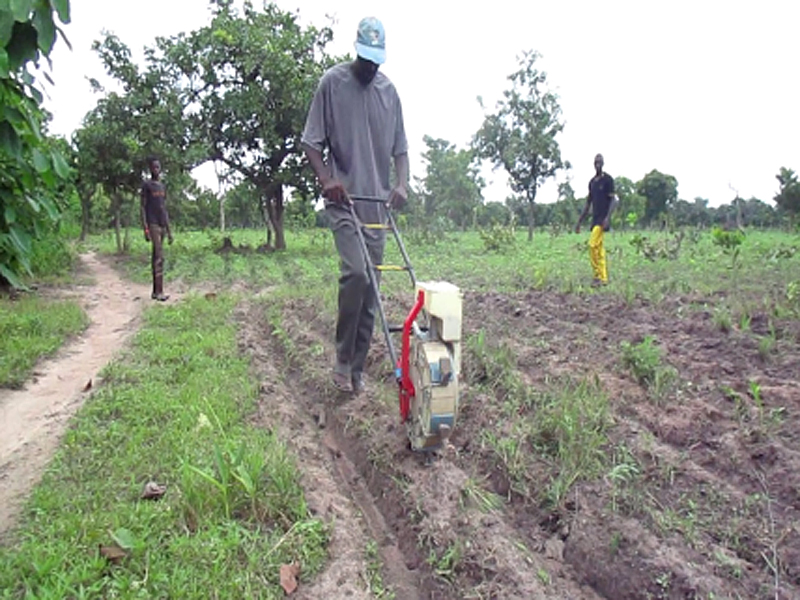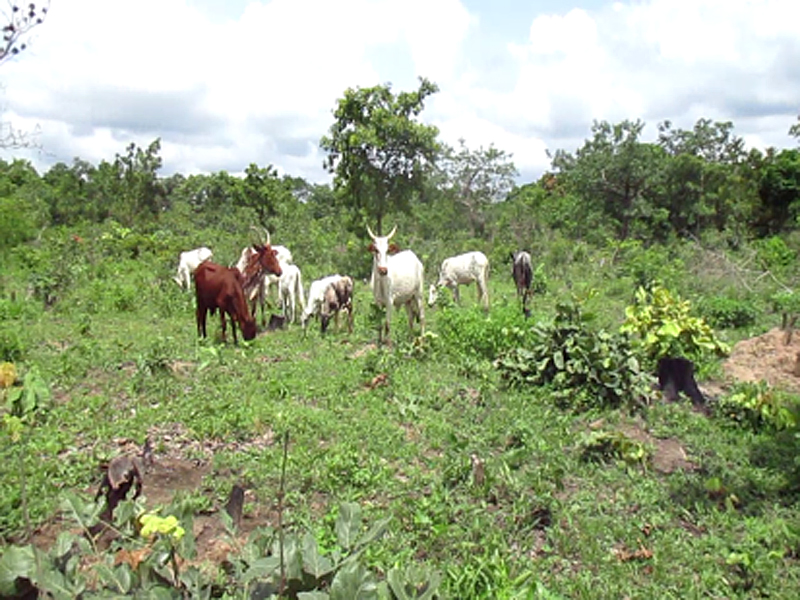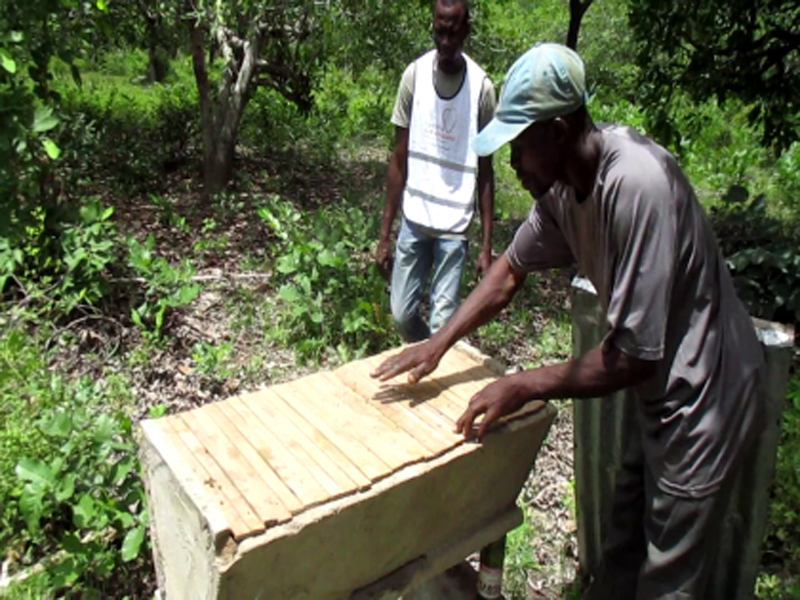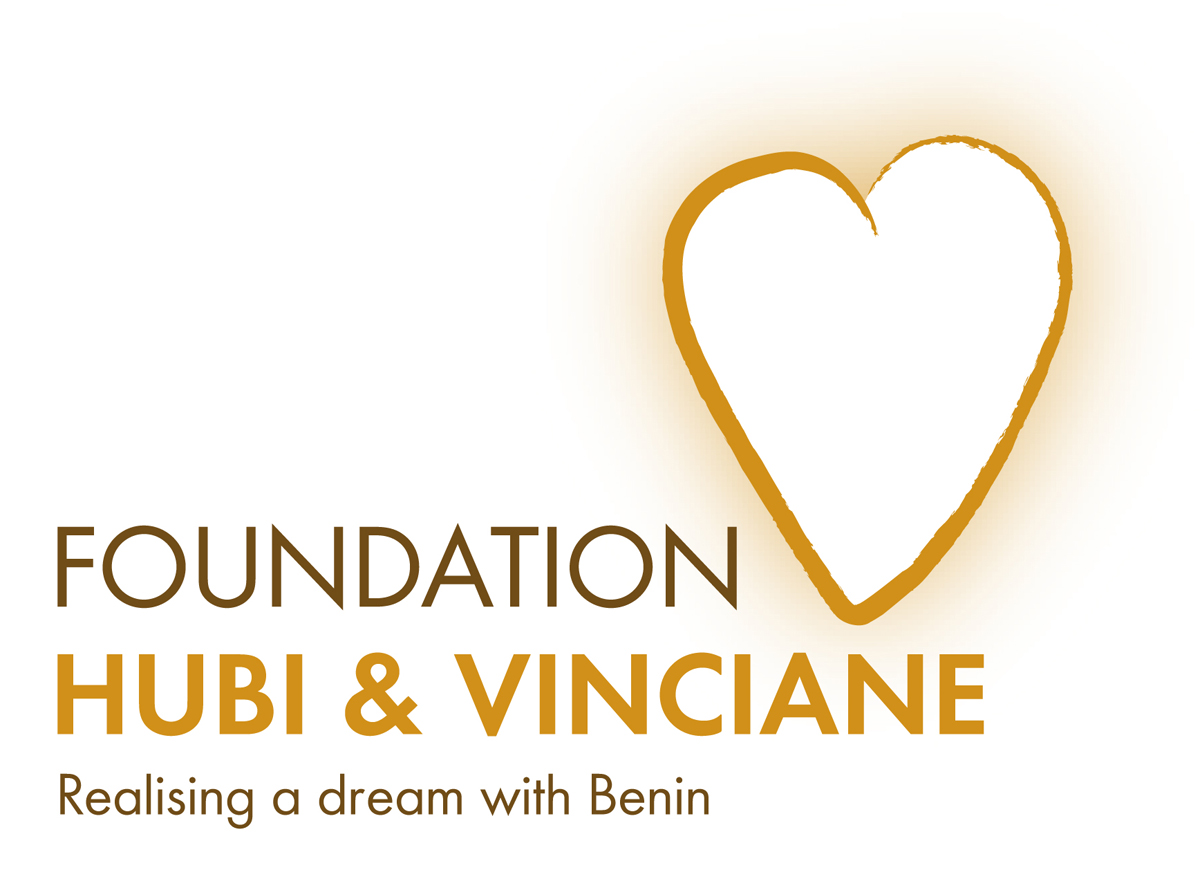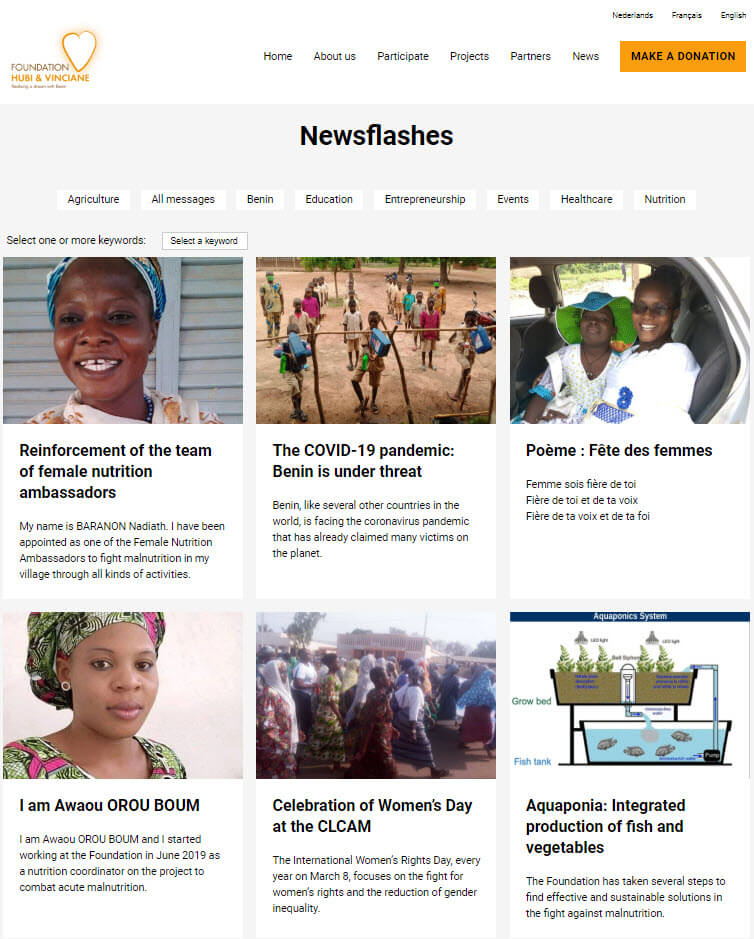Meet Albert Tori, a prosperous farmer
thanks to the support of our Foundation

Can you introduce yourself? And how did you get to know the Foundation?
My name is Albert Tori. I am a farmer, and I live in Sirarou, near N’Dali. I got to know the Foundation in 2016. At that time, I attended some of their training on soybean farming with other villagers. Thanks to this training, our village now has one of the most successful soybean crops in the region.
What about the Foundation’s agronomists? Have they supported you since then?
Yes, I certainly do. Thanks to them, I did not limit myself to growing maize and soya. They taught me how to grow different crops. And since I have a large plot of land of about 20 hectares, they advised me to opt for integrated farming. And that’s precisely what I’m doing now: combining fruit and vegetable growing with animal husbandry. So now I have about 100 poultry (chickens, roosters, ducks, and guinea fowl), about 50 goats, sheep, and cattle. I have several fruit trees, and I even have about thirty beehives which have allowed me to sell honey in the village for three years.

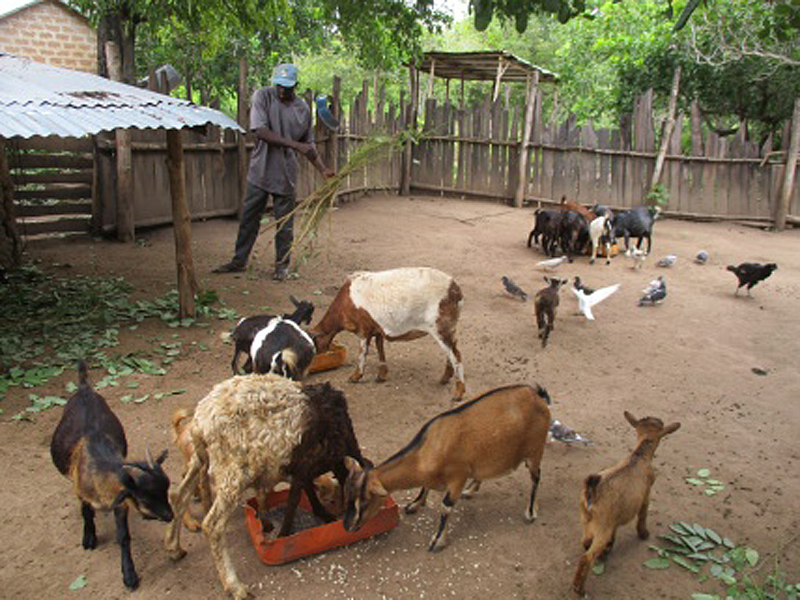
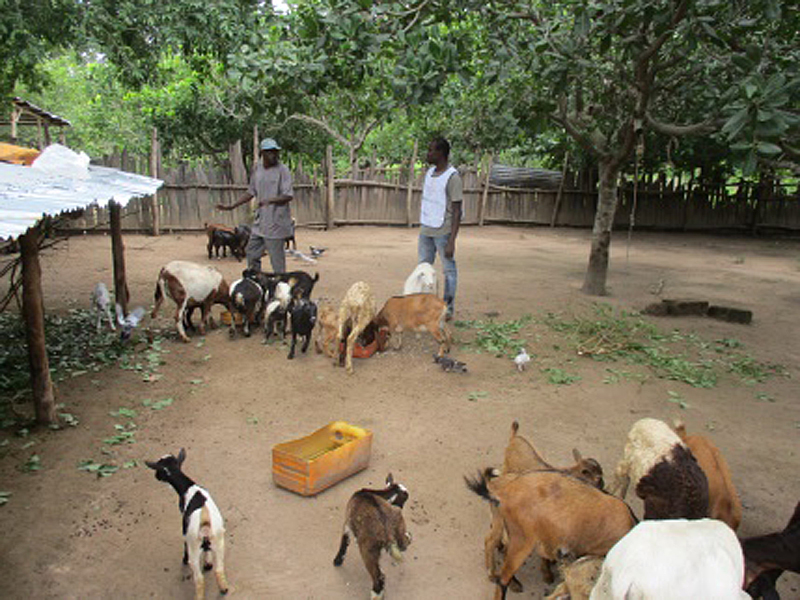
What about the Foundation’s agronomists? Have they supported you since then?
Yes, I certainly do. Thanks to them, I did not limit myself to growing maize and soya. They taught me how to grow different crops. And since I have a large plot of land of about 20 hectares, they advised me to opt for integrated farming. And that’s precisely what I’m doing now: combining fruit and vegetable growing with animal husbandry. So now I have about 100 poultry (chickens, roosters, ducks, and guinea fowl), about 50 goats, sheep, and cattle. I have several fruit trees, and I even have about thirty beehives which have allowed me to sell honey in the village for three years.
And how exactly did the agronomists support you?
They come here very regularly. They tell me how to take care of my animals and prevent them from getting sick. They also show me which plants I can use to feed them and fertilize the crops with their excrement.
With the support of the Foundation’s agronomists, I try to move as far as possible towards agroecology: working in an environmentally friendly way while obtaining the best potential yield at the lowest possible cost.
And have you ever noticed a difference in income?
Yes, I have much fewer financial problems now. With the proceeds from the sale of eggs, roosters, and guinea fowl, I can cover daily expenses and school fees. And when someone is sick, I sell a goat or a sheep or maize to cover the doctors and hospital fees.
And what are your plans for the future?
I will undoubtedly continue with integrated farming. My village colleagues now come regularly to me for advice. I have one of the most profitable farms in the village now.
And how can the Foundation support you further?
I have already received a lot of support from the Foundation, but a big problem for me is the lack of water. I have drilled a well, but during the dry season, there is no water. We have to walk four kilometers with 25-liter bottles to buy water.
I want to do more training, for example, in rabbit breeding. At the moment I don’t have the skills for that.
For the moment, I am managing with my means and the advice of the Hubi & Vinciane Foundation, but I remain open to any other support.
